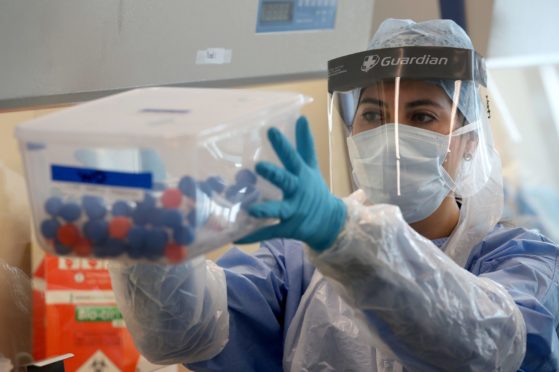NHS Shetland’s overspend this financial year stood at £2.8 million by the end of August, with Covid-19 the primary cause.
A report presented to a meeting of the health board yesterday said that the Scottish Government is expected to confirm funding allocations to boards to manage the response to Covid-19 this month.
Finance director Colin Marsland said additional costs at the end of August sat at £2.9 million, but this was offset by £800,000 in patient travel which did not occur.
“The impact of Covid-19 pandemic in addition to increasing our staff costs significantly required alterations to be made to our premises and an investment in additional clinical and IT equipment to ensure the health and safety of both staff and patients,” a report from Mr Marsland said.
“The impact of the Covid-19 pandemic also impacted the operating activity income of the board due lockdown impacting the number of non-Shetland residents receiving treatment as tourism ceased which also impacted the laundry income generated from the local hotel industry.”
For instance, an overspend at August in the human resources and support services directorate of £195,000 is entirely attributable to computer equipment bought in response to the Covid-19 pandemic.
A submission on these additional costs, plus lost income and savings proposals deferred offset by costs that were not incurred up to June, was submitted on 18 September.
NHS Shetland, however, has already received “pass through” allocations of £447,000 in respect of social care additional costs for the Covid-19 pandemic.
Marsland warned though that there are “cost pressures outside Covid-19 as locums are still required to fill substantive vacancies in mental health, anaesthetics and general medicine”.
“There is on-going recruitment to these vacancies and pathway redesign models being explored to reduce the reliance on locums and costs being incurred,” his report said.
Marsland also reiterated that it is “essential for longer-term financial sustainability” that a focus remains on service redesign.
“The Covid-19 pandemic has caused a stepped change in attitude to the use of remote medical technologies for both patient and clinicians that can provide opportunities for increased repatriation of services that could improve the patients experience via the minimisation of patient travel both on and off island and in addressing access targets,” he added.
Marsland also told the meeting that savings in patient travel are likely to continue throughout the financial year.
NHS Shetland chief executive Michael Dickson, meanwhile, conceded that he could not rule out the health board having to ask for additional funding later down the line. “I think it’s important at this point in the year to flag that that is a risk,” he said.
Board chairman Gary Robinson added: “I think it’s absolutely right that we take cognisance of that and that we look at how we might mitigate that before the year end.”
